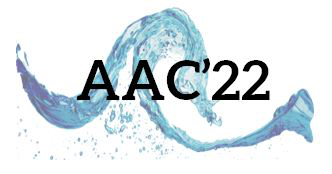Speaker
Description
An efficient numerical algorithm for multi-level ionization of high-atomic-number gases has been developed. It is based on analytical solutions to the system of differential equations describing evolution of ionization states. The algorithm fully resolves multiple time scales associated with ionization processes coupled to electromagnetic processes of laser-plasma interaction. The effects of the orbital quantum numbers and their projections are also examined. The algorithm efficiency is improved by using a locally reduced system of differential equations. The multi-level ionization algorithm has been implemented in SPACE, a parallel, fully relativistic, three-dimensional particle-in-cell code. In addition to Vlasov-Maxwell equation solvers, SPACE implements a novel, highly adaptive particle method for Vlasov-Poisson equations called Adaptive Particle-in-Cloud (AP-Cloud) that replaces the traditional PIC mesh with octree data structures. Verification and validation problems for the multi-level ionization algorithm in SPACE will be presented. The code has been applied to the study of ionization injection of electrons into laser-driven plasma wakefields. Comparison of simulations with BNL-ATF experiment on ionization-injection will also be discussed.
Acknowledgments
Grant No. DE-SC0014043 funded by the U.S. Department ofEnergy, Office of Science, High Energy Physics

